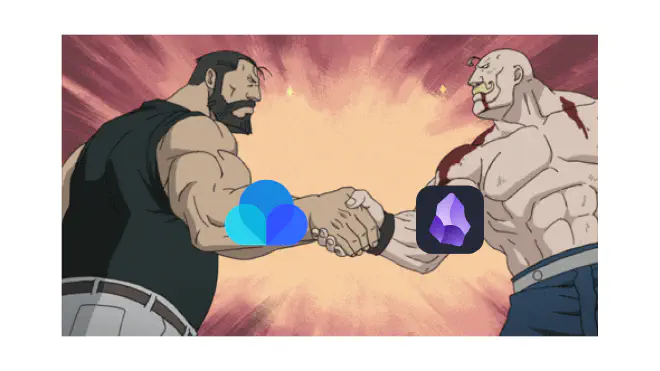Omnivore betrayed us and joined forces with ElevenLabs. Wallabag and Hoarder are indeed nice but I’m not exactly interested in self-hosting; How do I fix what Omnivore broke in my workflow!?
With Raindrop and Obsidian Web Clipper.

What’s Changed?
- New Obsidian Web Clipper capture template.
- New Raindrop Highlights capture template.
- New Dataview dashboard queries to show items from the above capture methods.
Obsidian Web Clipper
You’re saying I can highlight sections of webpages or the entire webpage and have it imported into Obsidian with perfectly formatted markdown!? Um, yes please!
Capture template
{
"schemaVersion": "0.1.0",
"name": "Save to reads",
"behavior": "create",
"noteContentFormat": "{{content}}",
"properties": [
{
"name": "source",
"value": "{{url}}",
"type": "text"
},
{
"name": "date",
"value": "{{date}}",
"type": "text"
},
{
"name": "summary",
"value": "",
"type": "text"
},
{
"name": "read",
"value": "",
"type": "checkbox"
}
],
"triggers": [],
"noteNameFormat": "{{title}}",
"path": "60-Resources/reads"
}
Dataview Dashboard Query
```dataview
TABLE without id file.link AS articles, file.ctime AS saved
FROM "60-Resources/reads"
WHERE read = false
SORT file.ctime DESC
```

Raindrop Highlights
I can put a stop to my alarming Reddit addiction?? And access bookmarks on mobile too?! Please. 🫴
Metadata Template
source: {{raindropUrl}}
{% set formatted_date = created | date('YYYY-MM-DD') %}
date: {{ formatted_date }}
{% set formatted_note = note | replace(''', "'") | replace('\n', '\n ') | safe %}
note: |
{{ formatted_note }}
Filename Template
{{title}}
Dataview Dashboard Query
```dataview
TABLE without id date AS Saved, file.link AS item, note, source
FROM "60-Resources/raindrop"
SORT file.ctime DESC
```

Detailed Breakdown
Suppose I find a longform article from Substack or elsewhere, I start by reading the first paragraph to decide if it’s something I want to save for later (with Obsidian Web Clipper) or revisit when I have the time to (via Raindrop)—and not necessarily have it saved.
I capture the entire webpage for articles I want to read later because I noticed important context gets lost by only saving highlights. Actual highlighting happens in Obsidian, plus I can easily add comments or footnotes to the highlighted sections. I could also create new notes that transclude or link to those sections.
Once I’m done reading, I mark the article as read, via the read property on the note, and it’s off my reading list. I also write a summary detailing my biggest takeaways from the article (if any) so I can glance at my summary board later to get an overview of it.

For articles or websites I want to revisit, I hitAlt+Shift+Q to save it and add a note detailing why I’d want to come back to it.

On mobile, I hit the share button, pick Raindrop from the list, and add my little note on there too.
It’s like…

On my dashboard:

I then read the article right there in Obsidian (via surfing). It’s then deleted or moved to archives once I’m done. Boom!

Perfect workflow! ✨
